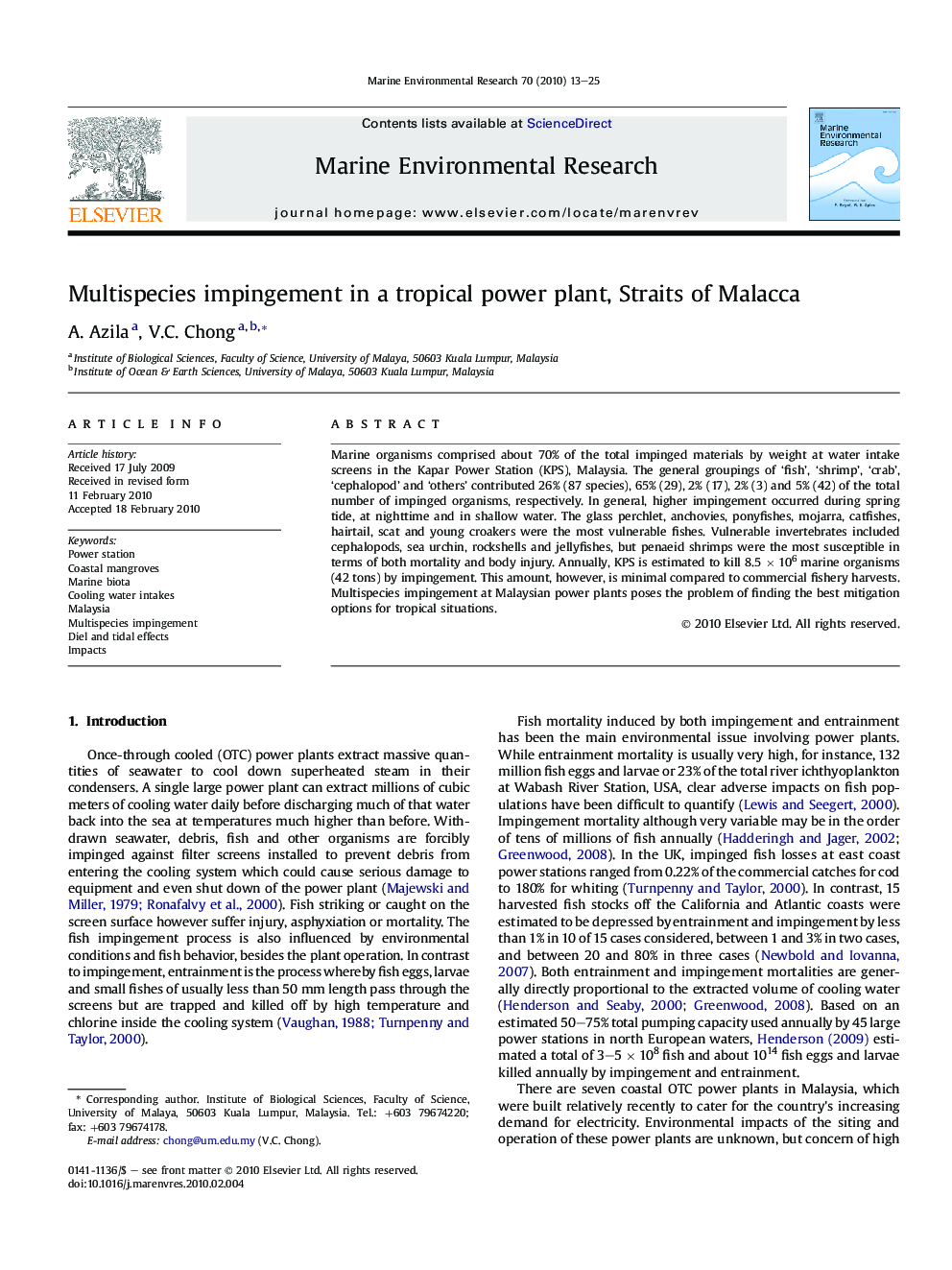| Article ID | Journal | Published Year | Pages | File Type |
|---|---|---|---|---|
| 4551273 | Marine Environmental Research | 2010 | 13 Pages |
Abstract
Marine organisms comprised about 70% of the total impinged materials by weight at water intake screens in the Kapar Power Station (KPS), Malaysia. The general groupings of 'fish', 'shrimp', 'crab', 'cephalopod' and 'others' contributed 26% (87 species), 65% (29), 2% (17), 2% (3) and 5% (42) of the total number of impinged organisms, respectively. In general, higher impingement occurred during spring tide, at nighttime and in shallow water. The glass perchlet, anchovies, ponyfishes, mojarra, catfishes, hairtail, scat and young croakers were the most vulnerable fishes. Vulnerable invertebrates included cephalopods, sea urchin, rockshells and jellyfishes, but penaeid shrimps were the most susceptible in terms of both mortality and body injury. Annually, KPS is estimated to kill 8.5Â ÃÂ 106 marine organisms (42Â tons) by impingement. This amount, however, is minimal compared to commercial fishery harvests. Multispecies impingement at Malaysian power plants poses the problem of finding the best mitigation options for tropical situations.
Related Topics
Physical Sciences and Engineering
Earth and Planetary Sciences
Oceanography
Authors
A. Azila, V.C. Chong,
